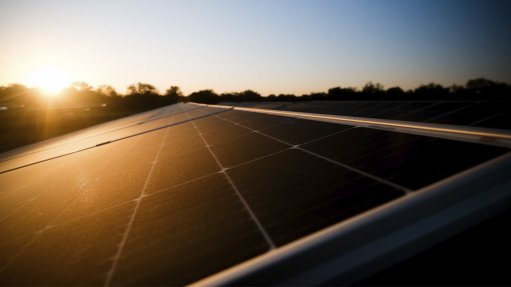Octodec swings to a profit, reports reduced vacancies
JSE-listed real estate investment trust (Reit) Octodec Investments has reported a material reduction in vacancies in the residential and industrial sectors for the financial year ended August 31, with the residential portfolio, in particular, having performed ahead of the company’s expectations.
Overall, the Reit reported a profit of R605.1-million for the year, compared with a loss of R174.8-million a year ago.
Although there was a continued downward resetting of rentals across most sectors, it was offset by several renewals being concluded at increased rentals, along with strong demand for space in both the Johannesburg and Tshwane central business districts (CBDs), the company highlighted.
“One of the areas that was hard hit was the Johannesburg city centre in terms of residential. The main reason for this was our competitors offloaded 2 500 flats that they had developed.
“An initial investigation, however, shows that most of these flats have been taken up. We’re therefore at equilibrium now and it's just down to price, supply and demand,” Octodec MD Jeffrey Wapnick told Engineering News on November 1.
Octodec said it had experienced an overall increase in residential leasing activity, resulting in significantly reduced vacancies and positive reversions on renewals, which impacted positively on the results.
Residential income increased by 7.6% year-on-year, from more than R1.8-billion last year to more than R1.9-billion this year, primarily owing to the return of students to universities for in-person classes and increased activity at OR Tambo International Airport, which improved letting activity at Kempton Place.
In addition, demand increased owing to initiatives such as the introduction of shared and furnished accommodation at some of its residential buildings and value-added services such as complementary WiFi for tenants in various other buildings.
“There is a clear demand for affordable, quality accommodation in both the Tshwane and Johannesburg CBDs. Due to the success of our value-enhancing initiatives, we have seen a 33% increase in leasing enquiries. We intend to accelerate the rollout of these offerings to more residential buildings to attract new tenants,” Wapnick said.
With vacancies almost at pre-Covid-19 levels, he said the focus would now change to increasing rentals per unit, while simultaneously being cautious of the impact that high inflation and increased interest rates will have on the disposable income of tenants and the consequential effect on vacancies.
Meanwhile, retail shopping centres delivered a stable performance for the year, with positive reversions on new leases and renewals, Octodec reported.
As a result, rental income from Octodec’s shopping centres increased by 5.9% year-on-year. However, the first half of the financial year was still impacted by lockdown restrictions, while the group’s street shops experienced subdued activity, with several negative rental reversions concluded during the year, as well as a slight increase in vacancies. This had resulted in a marginal increase in rental of 3% year-on-year.
“Despite market conditions still being under pressure for the typical South African consumer, we continue to see renewed confidence from large national retailers to sign extended leases for larger pockets of space and willingness to test the CBD market with brands previously only found in malls,” Wapnick said.
In terms of the Reit’s office portfolio, the oversupply of office space in major cities, owing to the sustained popularity of hybrid or work-from-home models, continues to put pressure on occupancy levels at office buildings, in line with the broader sector trend. As a result, rental income in the office sector decreased by 1.3% year-on-year.
Wapnick explained that the impact on its office portfolio was mitigated by the fact that about half of that space was leased by government, which provided stability and ensured a steady income.
However, the other half of the portfolio, which was comprised of offices that had been converted to accommodate small businesses, suffered somewhat over the past year. However, he expected that a large number of offices in the city centres would be taken up by the legal fraternity as they returned to in-person litigation.
Despite general rental pressure in the industrial sector, occupancy improved over the year, with a number of Octodec’s industrial buildings being 100% occupied. During the year, many new enquiries were received, with improved collections taking place from places of worship and some colleges within its specialised portfolio.
“The distributable earnings calculation was positively impacted by reduced debt and the lower interest rate environment at the time, which reduced finance costs,” Octodec FD Anabel Vieira said.
“We have made strides over the past two years to manage both our hedging profile and debt maturity profile, and we will continue to monitor opportunities to extend existing hedges, where appropriate.”
In terms of disposals, there has been a marked improvement in the conclusion of sales of properties previously identified for sale, with Octodec transferring 20 properties for a total net consideration of R218.4-million during the period.
“From a capital management perspective, our focus remains on maintaining a healthy balance sheet with an acceptable loan-to-value ratio. We will continue to assess new development and conversion opportunities as they present themselves, and as such, Octodec will retain sufficient funds for developments and acquisitions for this purpose,” Wapnick said.
Although the property sector, as a whole, faced certain headwinds, including poor municipal service delivery as well as rising inflation, increasing utilities costs and high-interest rates, Wapnick said the company remained confident that it was well-positioned through its niche expertise and diversified and defensive portfolio to benefit from a medium-to-long term economic recovery.
Distributable income after tax increased by 30% from R358.4-million to R466.1-million, with the board declaring a final dividend of 80c a share, with a total dividend of 130c for the full year – up 160% on the 50c a share last year.
Article Enquiry
Email Article
Save Article
Feedback
To advertise email advertising@creamermedia.co.za or click here
Comments
Press Office
Announcements
What's On
Subscribe to improve your user experience...
Option 1 (equivalent of R125 a month):
Receive a weekly copy of Creamer Media's Engineering News & Mining Weekly magazine
(print copy for those in South Africa and e-magazine for those outside of South Africa)
Receive daily email newsletters
Access to full search results
Access archive of magazine back copies
Access to Projects in Progress
Access to ONE Research Report of your choice in PDF format
Option 2 (equivalent of R375 a month):
All benefits from Option 1
PLUS
Access to Creamer Media's Research Channel Africa for ALL Research Reports, in PDF format, on various industrial and mining sectors
including Electricity; Water; Energy Transition; Hydrogen; Roads, Rail and Ports; Coal; Gold; Platinum; Battery Metals; etc.
Already a subscriber?
Forgotten your password?
Receive weekly copy of Creamer Media's Engineering News & Mining Weekly magazine (print copy for those in South Africa and e-magazine for those outside of South Africa)
➕
Recieve daily email newsletters
➕
Access to full search results
➕
Access archive of magazine back copies
➕
Access to Projects in Progress
➕
Access to ONE Research Report of your choice in PDF format
RESEARCH CHANNEL AFRICA
R4500 (equivalent of R375 a month)
SUBSCRIBEAll benefits from Option 1
➕
Access to Creamer Media's Research Channel Africa for ALL Research Reports on various industrial and mining sectors, in PDF format, including on:
Electricity
➕
Water
➕
Energy Transition
➕
Hydrogen
➕
Roads, Rail and Ports
➕
Coal
➕
Gold
➕
Platinum
➕
Battery Metals
➕
etc.
Receive all benefits from Option 1 or Option 2 delivered to numerous people at your company
➕
Multiple User names and Passwords for simultaneous log-ins
➕
Intranet integration access to all in your organisation


















